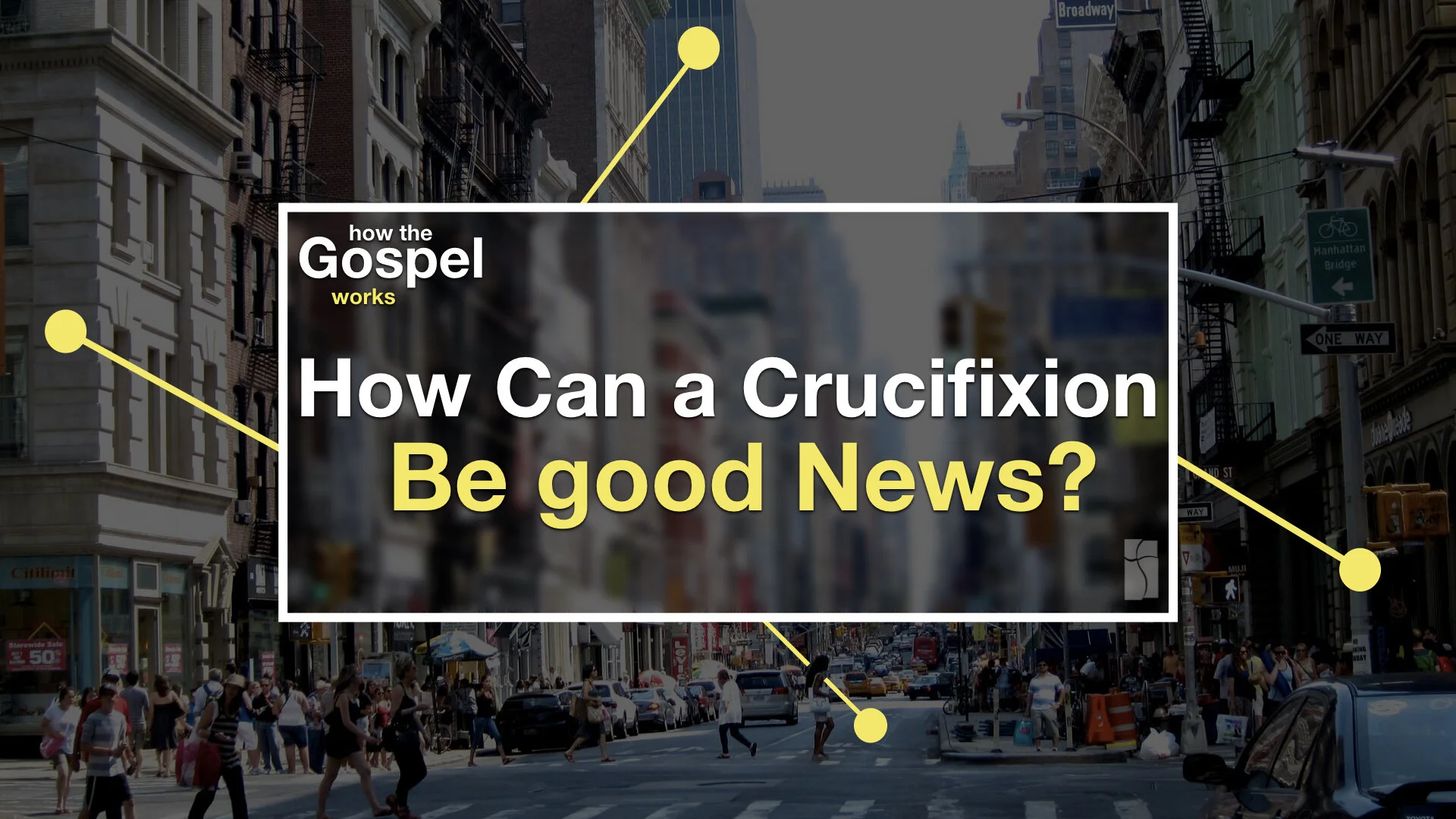How Can a Crucifixion Be Good News?
The Mystery at the Heart of Everything
We’re exploring how the Gospel works. How God works shining into hearts in the face of Jesus. But there’s a problem. 1 Cor. reflects it. Gospel isn’t guidance, wisdom, morality. It’s a complex event that’s being announced. Something already done that changes everything. It puts you in a new place. Trust it! But what events! Crucifixion, Resurrection!
Paul knows Jesus’ cross is offensive, foolish. But it embodies God’s power, wisdom. The basics are simple, impossible things, except by God’s action, drawing humans into them. The Messiah died; for our sins, fitting scripture. He was raised, scripture, he appeared. Things unexpected, humanly impossible, vast purposes for us, new reading of scripture! Yet Paul watches the power of the event in others and experiences that power himself.
The Event that Refuses to Become a Theory
Christ’s Spiritually Gifted Body
1 Corinthians 12:1-31
The Spirit of the Living God Speaks – vv 1-3 The Believers in Corinth loved the work of the Holy Spirit among them and asked Paul about people and things empowered by the Spirit (pneumatikos) – not just “spiritual gifts.” Paul contrasts their experience as Gentiles (before sharing God’s promises to Abraham). They knew only voiceless idols – you could make them say anything. But the Living Spirit has a distinct will and voice. If someone is “in God’s Spirit” (like “in Christ,” “in the Lord”) they’ll never say “Jesus is Anathema.” “In Holy Spirit” is where you know “Jesus is Lord.” One Spirit Gives Life to Diverse Individuality – vv 4-11 There is One God – Spirit, Lord, God. All are working as the Spirit works. Varied gifts of grace (charisma), service/ministry (diakonia), effective works (energema) are united at source. God gives every believer a part in showing the Spirit and his work into community and world. Paul seems intentionally unsystematic. God loves and creates diversity. No two believers are the same. Our personal identity, talents, passions combine with the Spirit’s purposes.
Cities of Hope: Corinth - Why Can’t God be as Smart as Us?
1 Corinthians 1:10-31
Paul in Corinth -- a Cultural Crossroads
Corinth a "new" Roman colony; destroyed in 146 bc, rebuilt by Julius Caesar in 44 bc. In ad 50, 94 yrs later, Paul arrives. Strong Jewish community. Jews expelled from Rome by Claudius in ad 48. Paul stays 18 mo. growing a complex community of Jews, god-fearers, pagans, etc. -- dynamic, lives changed, new experiences, under persecution. Paul moves on: Galatia, Ephesus. Paul learns about believers in Corinth, receives a letter of inquiries from them: writes 1 Corinthians in ad 54.
A community transformed by the Gospel and power of the Spirit but living in the social, cultural, political world of Greece and Rome. In 1Cor Paul deals with a variety of serious problems as they try to live into this new reality but are drawn back into old/common/pervasive ways of thinking.
Paul starts from a basic symptom that reveals the problem: conflict, competition, groups around various teachers. Common from both teachers and learners. Natural in complex communities.
So what's the problem? Get along. Competition among groups leads to clearer thinking--advance. Those with Greek education are going to have different perspective than Jews reading the Torah. It's obvious, natural and real. A community that brings together different ethnic groups, cultures, social classes is going to have competing points of view. It's more of a virtue than a problem.
The Dangerous Idea of Unity
The Last Enemy
1 Corinthians 15:20-26
Larry brings a message at the end of our Thanksgiving and Remembrance service.
A Community Without Barriers
Women's Role in the New Testament Church
This sermon is based on a longer text of "A Community Without Barriers - Women in the NT Church."


